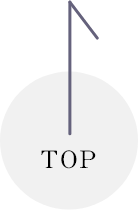幹細胞培養上清液療法
Professor Emeritus Minoru Ueda, currently Professor of Oral and Maxillofacial Surgery at Nagoya University School of Medicine since 1994, discovered the effect of stem cell culture supernatant solution on tissue regeneration through numerous animal experiments, which led to its clinical application and the world’s first report of human alveolar bone regeneration using deciduous tooth stem cell culture supernatants in 2016. In 2017, he reported that treatment outcomes were comparable to stem cell transplantation when only culture supernatant fluid was administered for stroke and spinal cord injury. Since around this time, the application of this technology to actual treatment has spread, and it has been shown to be effective for bone, skin, and allergic diseases such as atopic dermatitis, and is now being applied to diabetes, myocardial infarction, interstitial pneumonia, hepatitis, and autoimmune diseases. The mechanism is that mesenchymal stem cells, which are found in human-derived dental pulp, fat, umbilical cord, amnion, and bone marrow, produce large amounts of cytokines that reduce inflammation, repair damaged tissue, and increase capillary vascularity. It is believed that these cytokines proliferate the cells in the diseased area and show effects.
In general, mesenchymal stem cells do not show allergic symptoms to cytokines produced by other (other people) or autologous (one’s own) stem cells because the antigens on the surface of the stem cells that stimulate an immune response are lost during passaging. In practice, collecting autologous stem cells from one’s own subcutaneous fat or bone marrow is labor intensive, painful, and carries the risk of infection from injury, so we use culture supernatant fluid from other sources. Since our clinic uses other people’s cells, we use only specimens that have passed strict infectious disease testing(Hepatitis B, C, syphilis, HIV, HTLV-1, parvovirus B19, cytomegalo, herpes simplex, EB virus, mycoplasma) from Japanese people of known origin, and we use supernatant fluid cultured at a cell processing center (CPC) approved by the Ministry of Health, Labor and Welfare. Therefore, the cost can be reduced compared to autologous fat stem cell therapy because a large supply of stable quality supernatant fluid produced with high technology can be supplied in a short period of time. However, it is important to note that if a patient is administered stem cell culture supernatant fluid from another family, he or she will generally not be able to donate blood because infection with an unknown virus cannot be denied. Major cytokines contained in the supernatant fluid
Cytokines are small molecule protein factors secreted by cells in response to stimuli such as infection, inflammation, etc. Not only do they show a variety of physiological activities (regulation of immune and inflammatory responses, antibacterial, antiviral, antitumor, and regulation of cell proliferation and differentiation) in very small amounts (pluripotency), but there are also multiple cytokines that show the same functions (duplication), as shown below. There are inflammatory and anti-inflammatory cytokines, the former mainly involved in antibacterial and antiviral actions and repair of injured tissues (angiogenesis and cell proliferation) while the latter is involved in immune regulation to suppress excessive inflammatory responses. Autoimmune diseases such as rheumatism are caused when both cytokines are out of balance and inflammation becomes dominant.
Indicated diseases for administration of stem cell supernatant solution
- Menopausal complaints
- Chronic pain (e.g., rheumatoid arthritis)
- Alopecia
- Allergic diseases such as atopy
- Anti-aging
- Relief of fatigue, endurance enhancement (anti-doping)
- Post-myocardial infarction heart failure
- Non-alcoholic steatohepatitis
- Sequelae of COVID-19 infections.
Route of administration of adipose stem cell culture supernatant solution and standard administration schedule.
Intramuscular injection
-
menopausal disorders, chronic pain, anti-aging, fatigue recovery, endurance enhancement
| standard administration schedule | Monthly1 2ml (1 vials) or once every 2 months 4ml (2 vials) |
|---|---|
Intravenous infusion
-
alleviation of various symptoms of autoimmune diseases, recovery of neurological function after stroke, improvement of cardiac function after myocardial infarction, improvement of abnormal liver function due to fatty liver, post-pneumonia pulmonary fibrosis (including COVID-19).
| standard administration schedule | Monthly 10 ml (5vials) Intravenous drip infusion 15 min Continued for 3months |
|---|---|
Inhaled administration
-
Alzheimer's disease
| standard administration schedule | Weekly 2 ml (1 vial) for 6 weeks |
|---|---|
As a rule, payment is due on the agreed upon date.
Please use credit card.







